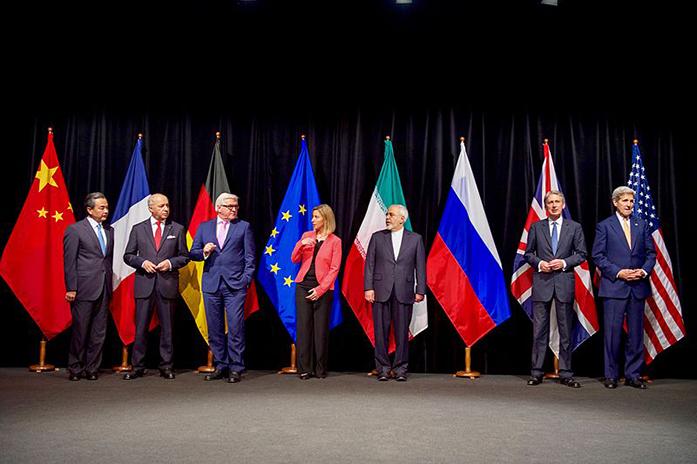Believe it or not, last year’s most prominent political discussion had very little to do with Donald Trump’s improbable and terrifying run at the Oval Office. Instead, the world had its attention set on Iran and its obvious — though not admitted — goals of building a nuclear arsenal.
The Iran deal — a colloquial name for the deal signed by the United States, Iran, and many others — was designed to prevent the Iran from reaching nuclear proliferation by de-escalating its ability and plans to enrich uranium. At the same time, however, the Obama administration decided to settle some other unfinished business with the tumultuous country.
According to CNN, around the same time the Iran deal was signed, the United States agreed to settle an international case involving the sale of military equipment from before the Iranian Revolution. The settlement was for $400 million of Iranian money being held by the U.S. because of sanctions, plus an additional $1.3 billion compromise on the interest, for a total of $1.7 billion.
The payment dates back, CNN reports, to a fund set up for such military purchases that was frozen in 1979, the settlement for which had been tied up since the 1981 Hague Tribunal.
While the Daily Iowan Editorial Board approves of settling old disputes and metaphorically killing two birds with one proverbial stone, the timing of the first $400 million transfer is nothing short of dangerous. It just so happens that the first $400 million installment of foreign currency was flown to Iraq after the release of four American prisoners, according to ABC News.
Although the existence of the military-equipment settlement provides a more legitimate reason for the money transfer, the timing is still questionable. Moreover, ABC News reports that the historian of the State Department has indicated that this type of transfer to “settle an international dispute” is unprecedented.
At the height of the debate over how to handle Iran’s nuclear desires, the congressional gridlock was unbearable. Few will forget — as it will likely become an important chapter of Barack Obama’s presidency — when Israeli Prime Minister Benjamin Netanyahu, addressed Congress on Speaker John Boehner’s invitation. Netanyahu addressed a largely Republican room about how terrible he felt President Obama’s proposed Iran deal was after Obama specifically asked Netanyahu not to speak in front of Congress.
One of Netanyahu’s main points was that going forward without a deal may have been better than a deal that allows Iran to discretely continue its nuclear growth and advancement. While this is obviously true, the complete lack of a deal was allowing just that.
The Obama administration, the Editorial Board believes, was correct in signing a deal with Iran. But that does not include the board’s approval of the $400 million transfer in conjunction with the release of American prisoners.
The American belief system has usually been built on the premise that our government will do all that is necessary to bring imprisoned citizens home to America. But it is a dangerous precedent to set to align payments with the release of political prisoners; even if they are allegedly unrelated.
According to numerous sources, many Republican politicians are referring to the payment as a “ransom,” and although this is not literally the case, there is definitely reason to believe the timing of the payment is not coincidental.
In the future, with the remainder of the Iran deal tenets and in other such deals, the United States must be careful not to fall into the trap of ransom payment.



